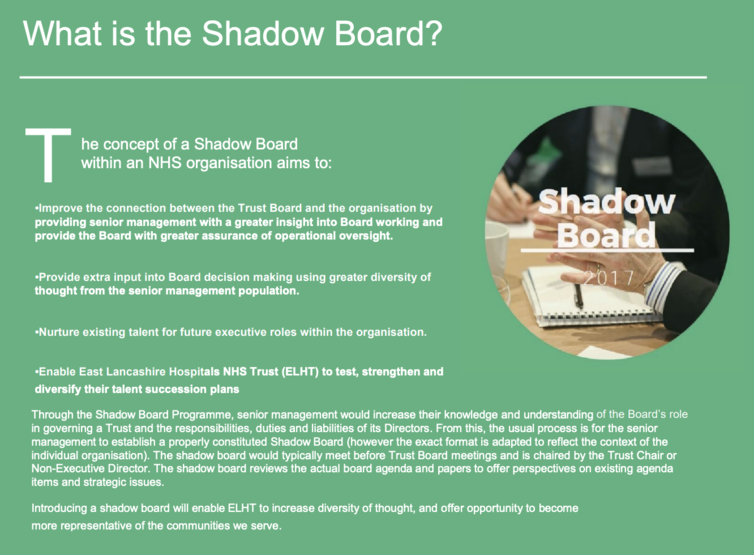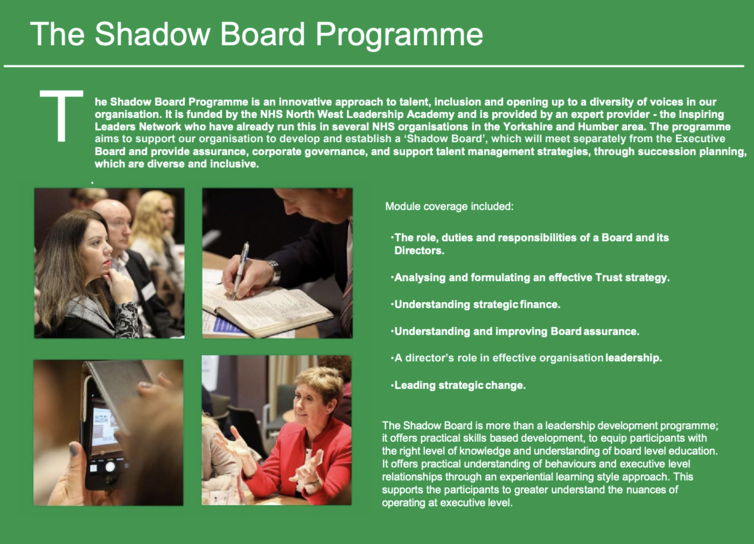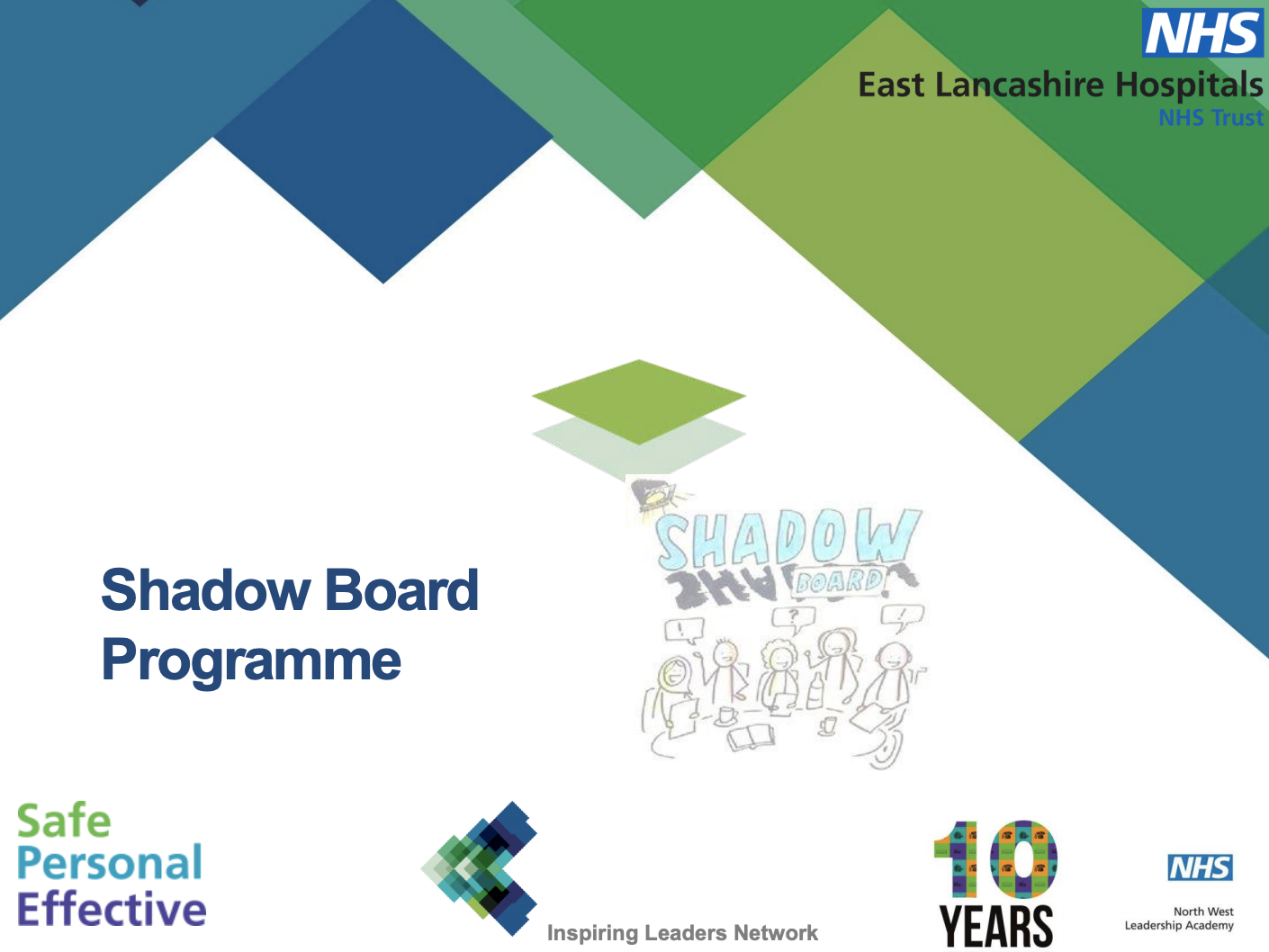EAST Lancashire Hospitals NHS Trust has launched its first “Shadow Board” to increase the numbers of black and minority ethnic staff in leadership roles.
The trust is taking part in a strategic leadership development programme designed and funded by the Northwest Leadership Academy.
The aim of the programme is to create a diverse pool of potential strategic leaders across the trust who are able to work with the board to shape and deliver the trust’s strategic objectives.
The programme involves the identification of potential future talent, the delivery of three one day modules and the formation of a ‘Shadow Board’.

The Shadow Board, which runs outside of the Trust’s governance structures, will be chaired by the Trust chair or Non-Executive Director and discuss papers to be presented to the Trust Board.
Diversity and Inclusion Manager, Nazir Makda, said: "Since 2015 all NHS organisations have been required to demonstrate how they are addressing race equality issues in a range of staffing areas through the Workforce Race Equality Standard.
"Recent research has demonstrated that the treatment and experience of Black Minority Ethnic staff (BME) within the NHS is significantly worse, on average, than that of NHS white staff.
"The publication of the Snowy White Peaks of the NHS (2014) indicated that Black Minority Ethnic staff (BME) staff were absent from leadership or senior positions of many organisations even where the workforce had substantial numbers of Black Minority Ethnic staff (BME) staff and where the organisation provided services to communities with large number of Black Minority Ethnic (BME) patients.
"The report also summarised research over recent years showing BAME staff were treated less favourably by every measure, including promotion, grading, discipline, bullying, and access to non-mandatory training.
"Whilst there have been a number of areas of good practice to celebrate, there remains an improvement needed around some of the more simple structures of the organisation in relation to equality monitoring, initial recruitment and also retention as well as increasing understanding of lived experiences and voices of staff, service users and carers in relation to different protected groups.
"There is still action to be taken in order to get more traction in areas of service accessibility, transition from services and complaints.
"In relation to staffing it is expected that programmes of work such as the NHS Equality Standards will begin to see a positive change in the experiences of staff from protected groups."

Mr Makda added the trust's Workforce Race Equality Standard data for 2018 showed a significant improvement on four indicators between BME and non-BME staff in relation to recruitment and targeted work, narrowing the gap in relation to staff appointed following shortlisting.
He said the trust is now performing above the national average.
"Work will be needed to recognise the barriers around the three staff survey WRES indicators, as this is an area identified for the trust for further improvement," Mr Makda added

